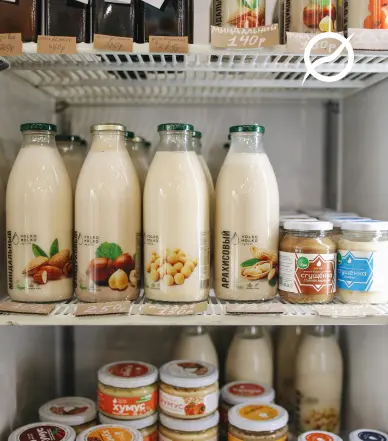In recent years, specialty foods have carved out a significant niche in the culinary world. From artisanal cheeses to exotic spices, the specialty food industry offers a wealth of opportunities for passionate entrepreneurs. Whether you're a culinary enthusiast looking to share your creations or an entrepreneur with an eye for curating exceptional products, the specialty food retail sector presents a promising avenue for business success.
What Defines Specialty Foods?
Specialty foods distinguish themselves through uniqueness and superior quality, setting them apart from mainstream products. These often include:
-
Artisan cheeses and expertly cured meats
-
Locally harvested honey and authentic maple syrup
-
Premium gourmet seafood
-
Exquisite, handcrafted confections
-
Authentic ethnic delicacies and imported specialties
As a producer or curator of these delights, you play a crucial role in the dynamic specialty food retail ecosystem.
Starting Your Specialty Food Business at Home
Many successful specialty food businesses begin in the comfort of home kitchens. Here's how to set yourself up for success:
-
Equip Your Space: Transform your home into a compliant production area. This may involve upgrading your kitchen equipment, ensuring proper storage facilities, and creating dedicated work areas.
-
Navigate Regulations and Licensing: Research and comply with local and federal food safety laws. Obtain all necessary permits and licenses to operate legally from your home.
-
Build Community Engagement: Leverage social media platforms like Facebook and Instagram to create buzz around your products. Encourage friends and family to spread the word and build your initial customer base.
-
Embrace E-commerce: Utilize user-friendly platforms to set up an efficient online store. This allows you to manage orders, track inventory, and handle fulfillment seamlessly from the start.

Exploring Pop-Up Retail Models
Pop-up stores offer a low-risk way to gauge market interest and refine your offerings:
-
Customer Interaction: Use pop-ups as a living laboratory to gather real-time feedback on your products and pricing.
-
Brand Visibility: Create buzz and excitement around your brand with unique, limited-time experiences.
-
Operational Flexibility: Take advantage of tools to manage pop-up operations efficiently, from point-of-sale to inventory tracking.
Establishing a Permanent Retail Store
When you're ready to put down roots, consider these crucial factors:
-
Strategic Location: Choose a spot that balances visibility, foot traffic, and affordability.
-
Financial Planning: Secure adequate funding and develop a solid financial strategy to support your growth.
-
Regulatory Compliance: Ensure all aspects of your business meet local and national regulations.
-
Scalable Solutions: Implement robust retail management systems to handle complex operations as you grow.

Scaling Up: Production and Distribution
As your business grows, you'll need to scale up production and explore broader distribution channels:
Production Options:
-
Upgrade your home kitchen
-
Rent a commercial kitchen space
-
Invest in your own production facility
Distribution Strategies:
-
Develop a strong e-commerce presence
-
Partner with local retailers
-
Explore wholesale opportunities
-
Consider working with distribution partners
Alternative Roles:
Even if you don't produce your own products, you can still thrive in this industry as a distributor or wholesaler of specialty foods.
Building a Robust Business Infrastructure
Success in specialty food retail requires thorough planning and a solid operational foundation:
-
Business Structure: Choose the most suitable format (e.g., LLC, corporation) based on your goals and legal requirements.
-
Legal Compliance: Handle all necessary permits, licenses, and insurance to protect your business.
-
Operational Excellence: Implement comprehensive retail software to streamline everything from inventory management to employee scheduling.
Market Research and Development
Understanding your market and standing out is crucial:
-
Analyze Competitors: Identify what works and what doesn't in your chosen market segment.
-
Track Market Trends: Stay ahead of consumer preferences and industry shifts.
-
Develop Your USP: Clearly define and communicate what makes your products or store unique to attract and retain customers.
Financial Strategies for Growth
Managing finances for long-term success is critical:
-
Explore Funding Options: Consider loans, investors, or crowdfunding to support your expansion.
-
Maintain Financial Health: Keep a close eye on cash flow, profitability, and credit scores.
-
Plan for the Future: Create detailed business plans and financial forecasts to guide your decisions.
Marketing and Branding
Building your brand and expanding your reach is essential:
-
Digital Marketing: Leverage SEO, content marketing, and social media to attract and engage customers online.
-
Traditional Advertising: Don't overlook the power of local media, press releases, and community engagement.
-
Brand Storytelling: Share your passion and the unique story behind your products to create emotional connections with customers.
Conclusion
Starting and thriving in the specialty food retail business is a journey that combines culinary passion with entrepreneurial skill. By following this guide and leveraging powerful tools, you can build a successful business that not only meets but exceeds your customers' expectations. Remember, the key to long-term success lies in offering exceptional products, providing outstanding customer experiences, and continuously adapting to market trends and consumer preferences.
Are you ready to embark on your specialty food retail adventure? With careful planning, dedication, and the right resources, your journey from home kitchen to thriving retail business can become a reality.
Further Research into Specialty Foods Retail business -
Books
-
Creating a thriving business: How to build an immensely profitable business in 7 easy steps - George Horrigan
-
The daily entrepreneur: 33 success habits for small business owners, freelancers and aspiring 9-to-5 escape artists - S.J.Scott and Rebecca Livermore
-
From Kitchen to Market - Stephen F.Hall
-
Start your own Specialty food business - The staff of Entrepreneur Media Inc. & Cheryl Kimball
Magazines
Retail Tech
Organizations